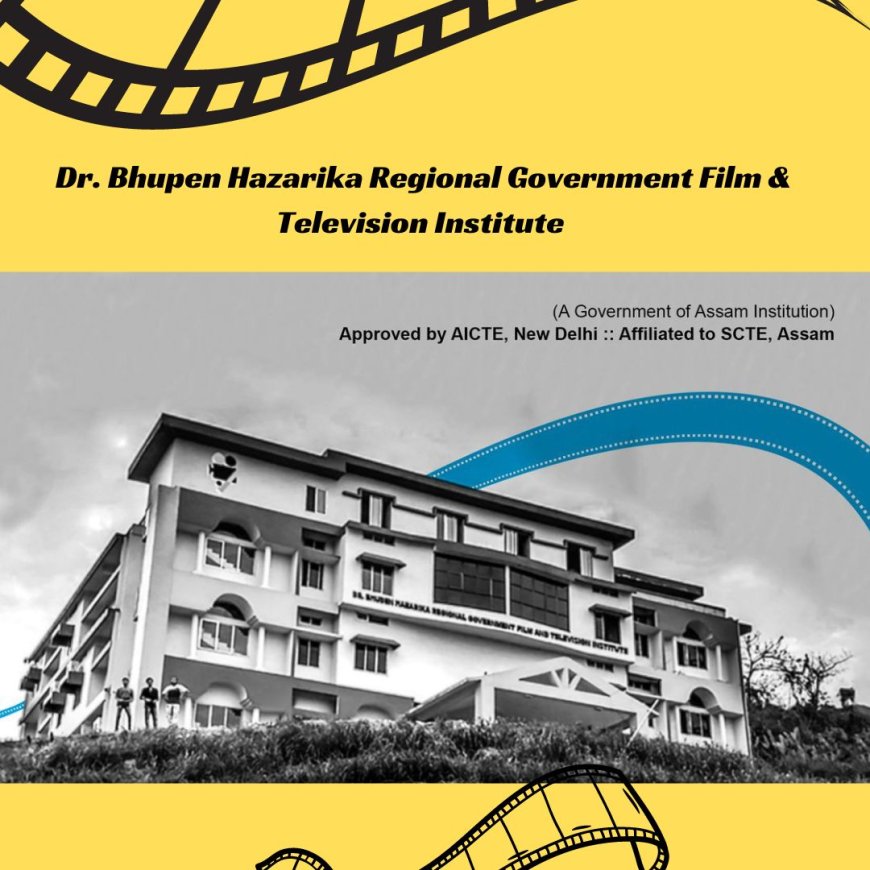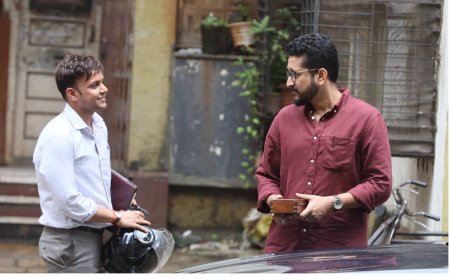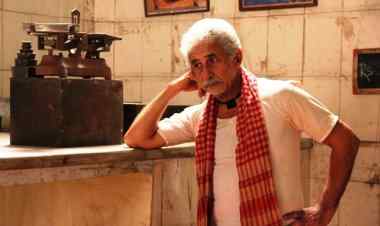DBHRGFTI: Direction and Screenplay Department
Parthajit Baruah writes that the DBHRGFTI is currently facing some challenges for the students due to the absence of a permanent director post and a lack of direction and screenplay department.

The two primary concerns that urgently need to be addressed by the relevant authorities for the betterment of the institute are the absence of a permanent Director's position and the lack of a Direction and Screenplay course at DBHRGFTI. Failure to rectify these issues promptly may result in students opting for alternative film schools.
India is home to two highly esteemed film schools: The Film and Television Institute of India and the Satyajit Ray Film and Television Institute. However, FTII has attracted numerous talented people in the fields of filmmaking, cinematography, audiography, acting, and editing. Filmmakers from SRFTI, including Vipin Vijay, Sagar Ballary, Anirban Dutta, Haobam Paban Kumar, Dominic Sangma, and many more, have established themselves on the global stage. FTII is home to a number of renowned filmmakers in the industry, including Adoor Gopalakrishnan, Mani Kaul, Jahnu Barua, Girish Kasaravalli, Santosh Sivan (cinematography), Resul Pookutty (audiographer), and many more. This film institute has developed into a hub for studying and appreciating international cinema. Every student admitted to this esteemed institution feels a tremendous sense of accomplishment, as its previous students have gained recognition both nationally and internationally.
The Dr. Bhupen Hazarika Regional Government Film and Television Institute is a prestigious film school in northeastern India. Founded in 1999 in Assam, the institute provides a wide range of departments, such as cinematography, editing, autography, and acting. Regrettably, the institute lacks a dedicated department for direction and screenplay, and its curriculum does not include film history. The institute can appoint well-qualified Northeast graduates who have graduated from India's esteemed film schools to serve as lecturers or faculty members. Various factors, including the Assam government, the institute's director, or the administration's indifference, could be to blame for the lack of direction and screenplay. But Dr. Bimal Krishna Sarma, along with other dedicated faculty members of the Dr. Bhupen Hazarika Regional Government Film and Television Institute, have made attempts to introduce new courses, but they are moderately successful.
Students in this institute's cinematography, editing, or audiography departments direct diploma films, as they do not offer screenwriting and direction courses. Despite their limited knowledge of screenwriting and direction, these students have overcome obstacles and demonstrated their abilities as accomplished filmmakers. The current faculty members of this institution have voluntarily assumed the responsibility of providing guidance to students in this field, despite the absence of a direction and screenplay department. Distinguished national and international film festivals have recognized and awarded their short and feature films, as well as documentaries. Presenting a list of names: Amit Pritam and Debajit Changmai have both been members of the Academy of Motion Picture Arts and Sciences (OSCAR). They shifted to Mumbai and received numerous distinguished accolades, including the 2009 IIFA Award for Technical Excellence (Amrit Pritam) and the 57th National Award for Best Sound Designer (Amrit Pritam). In 2013, they received the IIFA Award for Technical Excellence for the Best Sound Mixing in Debjit Changmai's film Barfi (2012). Suraj Duara, Jaicheng Dohutia, Debajit Gayan, Nahid Ahmed, Chida Bora, Hiranya Kalita, Sanjib Parasar, Subhra Sameer Jyoti, Pranab Haloi, and a plethora of other filmmakers have also contributed to the institute's glory.
These experienced filmmakers, cinematographers, audiographers, and editors have established a solid precedent for the younger generation of this institute. These talented students, coming from different parts of the North-East, have brought tremendous honour to the institute with their impressive accomplishments. In light of their impressive achievements at prestigious film festivals such as the Mumbai International Film Festival, the National Film Award, the Kolkata International Film Festival, and the International Film Festival of Kerala, it is evident that the new generation possesses exceptional talent, despite the absence of a dedicated direction and screenplay department.
The institute, set to commemorate its 25th anniversary in 2024, is presently encountering significant obstacles, including the absence of a permanent director post. The director's engagement in several extracurricular endeavours beyond the film school has posed difficulties for students in the production of their graduation films. Considering its exclusive status as the only film school in the north-east, it is crucial for the government and cultural department to thoroughly assess the director's commitment and influence on the institute's overall well-being. To meet all students' needs, the institute must teach "History of Cinema". A thorough knowledge of film history is required in order to promote the institute's intellectual development and enhance its comprehension of global cinema. However, the lack of a Direction and Screenplay department, which is essential for a film school, has led to students being accountable for directing their own graduation films. This has presented challenges from the outset. Despite its imperfections, a select few gifted young filmmakers at the academy have attained remarkable success, instilling a sense of pride in the institution. We should provide our backing and promote these filmmakers who exhibit exceptional promise, namely Hirak Jyoti Pathak, Keshar Jyoti Das, Sanjib Gogoi, Rumi Kalita, Diganta Bora, Pranab Jyoti Deka, Sujit Debbarma, Waribam Dorendra, Pallab Rajbongshi, Raktim Ranjan Basumatary, and others.
One of the names that immediately comes to mind. The National Film Archives of India (NFAI) and the Film and Television Institute of India (FTII) both provided support for the critically acclaimed summer film appreciation course, which he was instrumental in formulating. He actively cultivates knowledge and appreciation of film, and studies cinema within the framework of film education. He was instrumental in the development of the institute's objectives and goals. Students continue to hold him in high regard, despite the fact that they have already achieved recognition in Indian film and cinema from around the globe. Assam needs a teacher who is fully committed to promoting Assamese and Northeast cinema for the benefit of the students. In order to provide students with a comprehensive understanding of world cinema and enlighten them, this educator must emulate the approach of Prof. Satish Bahadur at the DBHRGFTI.
The DBHRGFTI requires a director who is committed to the institute's mission and possesses a deep understanding of cinema. On the other hand, the institute could greatly benefit from a fresh perspective and strong leadership in the form of a new chairman who can offer valuable guidance in policymaking. The addition of a film appreciation course, a film history course, and a department of direction and screenplay will create new opportunities for this institute. Under the guidance of faculty members, this institute can proudly showcase its remarkable achievements, whether they are alumni or current students. In addition, the institute has the potential to appeal to a new generation of students by offering innovative courses.
What's Your Reaction?

































































